Politics

 My nephew, Weston Moore decided last year, after his high school graduation, to take some time off before going to college. He wanted to work, save up some money, and buy a different car. He also planned to save up some money for when he goes back to school. At this point, he is getting close to having enough money for the car, but as we all know, things have changed today’s world. with the Coronavirus Pandemic, people are being told to stay at home, businesses are closing down, only essential workers are allowed to go to work…all in an effort to stop the spread of this virus. That said, Weston still has a job, but not many hours.
My nephew, Weston Moore decided last year, after his high school graduation, to take some time off before going to college. He wanted to work, save up some money, and buy a different car. He also planned to save up some money for when he goes back to school. At this point, he is getting close to having enough money for the car, but as we all know, things have changed today’s world. with the Coronavirus Pandemic, people are being told to stay at home, businesses are closing down, only essential workers are allowed to go to work…all in an effort to stop the spread of this virus. That said, Weston still has a job, but not many hours.
In this time, Weston and his family are thankful that he was not away at college, especially since the colleges are mostly closed. Weston is still living at home and his family are all thankful to be together in this difficult time. Thinking back on his graduation, he and his family are glad he graduated last year, because with the pandemic, no school is assured of the ability to hold their graduation ceremonies or parties.
Many things are different now, and it is quite likely that there will be no big gathering for Weston’s birthday. Instead it will be just him, his brother, Easton; and their parents, Machelle and Steve. His mom decides to get a cake last week so she would have one, in case she couldn’t get out as the day drew closer. At this point, they 
 have been hunkering down at the house, leaving only when necessary, and concentrating on staying well. Things are always subject to change…instantly in times of a great pandemic, like we are in the midst of, but Weston always has a great attitude, and that can make his one person who will lift every one else’s spirits. That kind of person is exactly what we need in trying time, and I’m glad that the Moore family has just such a person. These are strange times. Today is Weston’s 20th birthday. Where have the years gone. Happy birthday Weston!! Have a great day!! We love you!!
have been hunkering down at the house, leaving only when necessary, and concentrating on staying well. Things are always subject to change…instantly in times of a great pandemic, like we are in the midst of, but Weston always has a great attitude, and that can make his one person who will lift every one else’s spirits. That kind of person is exactly what we need in trying time, and I’m glad that the Moore family has just such a person. These are strange times. Today is Weston’s 20th birthday. Where have the years gone. Happy birthday Weston!! Have a great day!! We love you!!
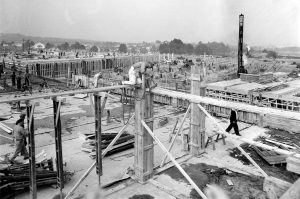
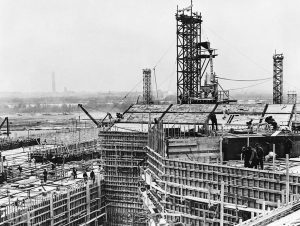 One of the most unique buildings in the United States is the Pentagon. I’m sure that most people think that it was built the way it was to provide a better level of security for the people working within its walls, but that was not the case at all.
One of the most unique buildings in the United States is the Pentagon. I’m sure that most people think that it was built the way it was to provide a better level of security for the people working within its walls, but that was not the case at all.
The Pentagon was originally planned for a different location, but for reasons unknow, the structure could not be built on that location. The original location was a rather tight space, so in an effort to fit the building in the field that was located between five major roads, the design of an irregular pentagon was chosen. The building couldn’t be very tall due to regulations in the area, and so 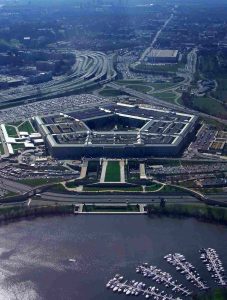 the design was an almost-level irregular pentagon. Still, the building needed to house 40,000 people and have parking for 10,000 vehicles. That is a very tall order, for a short building. In the end, the planned location, was not allowed, and the Pentagon had to be moved.
the design was an almost-level irregular pentagon. Still, the building needed to house 40,000 people and have parking for 10,000 vehicles. That is a very tall order, for a short building. In the end, the planned location, was not allowed, and the Pentagon had to be moved.
Of course, with the location change, it was thought, at first, that the design to be changed too, but everyone involved in the design immediately got mad about the change. The designer had already been paid for his work, and it wasn’t really fair to take the payment back, nor did they want to pay for something they did not use. Finally it was decided to go ahead with the original design, and the result is the well-known, irregular pentagon shape that we are all very familiar with. While the Pentagon is synonymous world-wide with defense, he design had nothing to do with defense at all, but rather it was in an effort to put the building in the space allowed…much like a child putting a square peg in a square hole so that it fits.
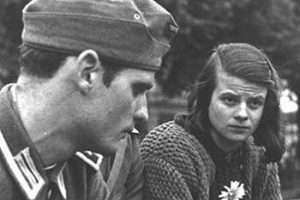
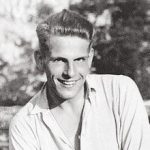 The White Rose was a non-violent, intellectual resistance group in the Third Reich led by a group of students including Hans and Sophie Scholl. The students attended the University of Munich. Their goal was to promote awareness using an anonymous leaflets and a graffiti campaign that called for active opposition to the Nazi regime. Of course, while the actions were anonymous, the Third Reich had spies everywhere. The activities of The White Rose started in Munich on June 27, 1942, and ended with the arrest of the core group by the Gestapo on February 18, 1943. The core group, as well as other members and supporters of the group who carried on distributing the pamphlets, were sentenced to death or imprisonment in show trials by the Nazi People’s Court (Volksgerichtshof).
The White Rose was a non-violent, intellectual resistance group in the Third Reich led by a group of students including Hans and Sophie Scholl. The students attended the University of Munich. Their goal was to promote awareness using an anonymous leaflets and a graffiti campaign that called for active opposition to the Nazi regime. Of course, while the actions were anonymous, the Third Reich had spies everywhere. The activities of The White Rose started in Munich on June 27, 1942, and ended with the arrest of the core group by the Gestapo on February 18, 1943. The core group, as well as other members and supporters of the group who carried on distributing the pamphlets, were sentenced to death or imprisonment in show trials by the Nazi People’s Court (Volksgerichtshof).
Hans and Sophie Scholl and Christoph Probst were among the members of the core group. They were captured on February 18, 1943. During the trial, Sophie interrupted the judge multiple times, but she was ignored. No defendants were given any opportunity to speak. They had no way to defend themselves, and were found guilty at the “trial.” They were executed by guillotine four days after their arrest, on February 22, 1943. The group had only been active for eight months, they had never committed a violent act, and yet they were put to death. Hitler’s regime considered them more of a threat for pamphlets and paintings, than if the had run around shooting people.
The group wrote, printed, and initially distributed their pamphlets in the greater Munich region. As the movement grew, secret carriers brought copies to other cities, mostly in the southern parts of Germany. The White Rose authored a total of six leaflets, which were multiplied and spread. In all, about 15,000 copies were printed. They denounced the Nazi regime’s crimes and oppression, and called for resistance. They openly 
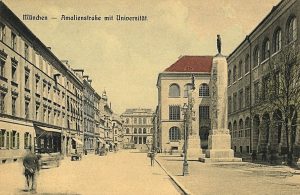 denounced the persecution and mass murder of the Jews, in their second leaflet. By the time of their arrest, the members of the White Rose were just about to establish contacts with other German resistance groups like the Kreisau Circle or the Schulze-Boysen/Harnack group of the Red Orchestra. Today, the White Rose is well known both within Germany and worldwide. Sadly the movement ended almost before it could get started.
denounced the persecution and mass murder of the Jews, in their second leaflet. By the time of their arrest, the members of the White Rose were just about to establish contacts with other German resistance groups like the Kreisau Circle or the Schulze-Boysen/Harnack group of the Red Orchestra. Today, the White Rose is well known both within Germany and worldwide. Sadly the movement ended almost before it could get started.

 With each new story of disaster, pandemic, or even murderous scare tactics, the news media splashes the newspaper, internet, and television with sensationalistic stories of doom and gloom. Yes, these things are serious matters, but sometimes I wonder if the news media are the only ones who are doing well throughout the crisis. It’s not that the news media doesn’t have a job to do so that the people are well informed, but even the doctors are saying that they have far overdone the current news stories. The news media has led people to believe that this is going to get so bad that entire cities are going to be quarantined for extended periods of time. The news reports are so bad, that it has prompted people to run out and buy up every necessity to the point of shortages. Things like toilet paper, hand sanitizer, face masks, disinfecting wipes, and rubbing alcohol are in seriously short supply. People are buying far more than they could possibly us in more than a year. There have even been people who won’t drink Carona beer, because of the similarity to the name of the virus. The insanity is astounding!!
With each new story of disaster, pandemic, or even murderous scare tactics, the news media splashes the newspaper, internet, and television with sensationalistic stories of doom and gloom. Yes, these things are serious matters, but sometimes I wonder if the news media are the only ones who are doing well throughout the crisis. It’s not that the news media doesn’t have a job to do so that the people are well informed, but even the doctors are saying that they have far overdone the current news stories. The news media has led people to believe that this is going to get so bad that entire cities are going to be quarantined for extended periods of time. The news reports are so bad, that it has prompted people to run out and buy up every necessity to the point of shortages. Things like toilet paper, hand sanitizer, face masks, disinfecting wipes, and rubbing alcohol are in seriously short supply. People are buying far more than they could possibly us in more than a year. There have even been people who won’t drink Carona beer, because of the similarity to the name of the virus. The insanity is astounding!!
I’m not saying that people don’t need to know about the situation, but when you turn on the news and all you hear is the fear mongering of the news media. The drama seekers need to set aside the need to “make their entire career” with the latest crisis, and instead give the information needed, in a clear non-dramatic manner so people have the ability to make sensible decisions about their own health. The way the latest media-managed crisis is being handled is like yelling “fire” in a packed event center. Yes, you’ll clear the place out, but lives will be lost in the process.
For some time now, the news media has been throwing out so much fake news that people no longer believe the news media. That is a dangerous place to be, because, like the boy who cried “wolf,” after a while nobody is listening anymore. They already know that the news media is just sensationalizing the story, so it’s probably all a lie anyway. If there ever is a serious crisis, it will arrive before anyone can prepare, because the screaming of the news media into the wind, is no longer being heard. It’s time for the news media to get back to the 
 “honorable,” “fair and balanced,” “we report, you decide” way of reporting again, so they can begin to rebuild the people’s trust, which they lost long ago. Since the news media can’t stop the sensationalism, it’s time for the people to use common sense, and show that we are wiser than the news media. There are so many ways to protect ourselves, without mass hysteria.
“honorable,” “fair and balanced,” “we report, you decide” way of reporting again, so they can begin to rebuild the people’s trust, which they lost long ago. Since the news media can’t stop the sensationalism, it’s time for the people to use common sense, and show that we are wiser than the news media. There are so many ways to protect ourselves, without mass hysteria.
 I read a book the other day, called “The Librarian of Auschwitz.” It is a true story about a woman named Dita Polachova , who at the age of 14 years was imprisoned at Auschwitz. I was moved by the sacrifices the people in her network made, as well as the many people I have read about in the past. We, in America, don’t often understand the need to sacrifice our own safety, and many people wouldn’t do it even if it was necessary. Dita was one of those people who would.
I read a book the other day, called “The Librarian of Auschwitz.” It is a true story about a woman named Dita Polachova , who at the age of 14 years was imprisoned at Auschwitz. I was moved by the sacrifices the people in her network made, as well as the many people I have read about in the past. We, in America, don’t often understand the need to sacrifice our own safety, and many people wouldn’t do it even if it was necessary. Dita was one of those people who would.
She was in charge of eight books that someone had smuggled into Auschwitz, the first sacrifice. It was something that could have cost the smuggler his life, but he saw value in the ability to get the books into the hands of the family camp, and the children’s school at Auschwitz. The family camp, and the coordinated children’s school was unique to Auschwitz. Most camps did not allow families to stay together. In fact, most of the children were killed upon arrival at the camps. The family camp and the children’s school were the 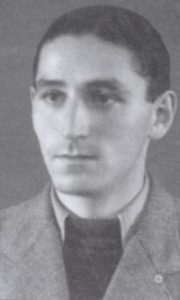 brainstorm sacrifice Freddy Hirsch, who was a Jewish athlete, one of the great runners. He was almost impossible to beat. I don’t know if that was what gave him some pull or not, but he made a sacrifice that turned out to be the ultimate sacrifice. Fredy Hirsch would not survive Auschwitz. It wasn’t because the books were found, but rather that the Nazis were taking away the family camp and children’s school. He took his own life. He assumed that the precious books would be lost, but he had underestimated Dita, who managed to get the books back in their hiding place, where they were not found by the Nazis.
brainstorm sacrifice Freddy Hirsch, who was a Jewish athlete, one of the great runners. He was almost impossible to beat. I don’t know if that was what gave him some pull or not, but he made a sacrifice that turned out to be the ultimate sacrifice. Fredy Hirsch would not survive Auschwitz. It wasn’t because the books were found, but rather that the Nazis were taking away the family camp and children’s school. He took his own life. He assumed that the precious books would be lost, but he had underestimated Dita, who managed to get the books back in their hiding place, where they were not found by the Nazis.
Dita outlived the Nazi reign of terror and went on to lead a happy life, despite the memories that would haunt her for the rest of her life. She married Arvid Harnack, an author, who with the writer Adam Kuckhoff and his wife Greta, who with Mildred Fish-Harnack brought together a discussion circle which debated political perspectives on the time after the National Socialists’ expected downfall or overthrow. From these meetings arose what the Gestapo called the Red Orchestra resistance group.
The Red Orchestra, Die Rote Kapelle in German, or the Red Chapel as it was known in Germany, was the name given by the Gestapo to anti-Nazi resistance workers during World War II. The members included friends of Harro Schulze-Boysen and Arvid Harnack in Berlin, as well as groups working independently of these intelligence groups, working in Paris and Brussels, that were built up on behalf of Leopold Trepper on behalf of the Soviet Main Directorate of State Security. The Red Orchestra was neither 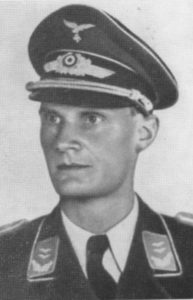 directed by Soviet communists nor under a single leadership but a network of groups and individuals, often operating independently contrary to legend. About 400 members are known by name at this time. They printed illegal leaflets hoping to incite civil disobedience, helped Jews and opposition escape the regime, documented the crimes of the Nazi regime, and forwarded military intelligence to the Allies. The public perception of the “Red Orchestra” is characterized by the transfigurations of the post-war years and the Cold War.
directed by Soviet communists nor under a single leadership but a network of groups and individuals, often operating independently contrary to legend. About 400 members are known by name at this time. They printed illegal leaflets hoping to incite civil disobedience, helped Jews and opposition escape the regime, documented the crimes of the Nazi regime, and forwarded military intelligence to the Allies. The public perception of the “Red Orchestra” is characterized by the transfigurations of the post-war years and the Cold War.
The network of people willing to risk their own lives during the Holocaust years was extensive. From Jews who risked their lives to make life better in and out of the camps, to non-Jews who risked their lives to fight against the atrocities of the Nazi Regime and the Third Reich. These were brave people who knew that bravery isn’t about being fearless, but rather being brave despite the fear. Their stories deserve to be told. They deserve recognition, because in the face of the worst odds, they took action anyway. That is true bravery, and true sacrifice.
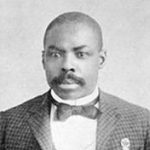
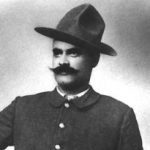 Seldom does it happen that money from a robbery is never recovered, but that is the case for approximately $28,000 in gold and silver coins, which have been missing for more than a century. The money came from the little known Wham Paymaster Robbery, which occurred near Pima, Arizona. Eight suspects were caught and tried for the crime, but in the end, they walked away free men. The circumstances of the robbery remain an unsolved mystery to this day. The robbery of US Army Paymaster, Major Joseph Washington Wham occurred on May 11, 1889 in the early morning hours. Wham was preparing to make the trip from Fort Grant to Fort Thomas to pay the soldiers’ salaries. The day before, he had distributed the pay to Fort Grant. That day, he was to pay the men at Fort Thomas, Camp San Carlos, and Fort Apache.
Seldom does it happen that money from a robbery is never recovered, but that is the case for approximately $28,000 in gold and silver coins, which have been missing for more than a century. The money came from the little known Wham Paymaster Robbery, which occurred near Pima, Arizona. Eight suspects were caught and tried for the crime, but in the end, they walked away free men. The circumstances of the robbery remain an unsolved mystery to this day. The robbery of US Army Paymaster, Major Joseph Washington Wham occurred on May 11, 1889 in the early morning hours. Wham was preparing to make the trip from Fort Grant to Fort Thomas to pay the soldiers’ salaries. The day before, he had distributed the pay to Fort Grant. That day, he was to pay the men at Fort Thomas, Camp San Carlos, and Fort Apache.
Wham, along with his clerk, William Gibbon, and Private Caldwell, his servant and mule tender, climbed into a canopied wagon driven by Buffalo Soldier, Private Hamilton Lewis for the 46 mile trip to Fort Thomas. The payroll Wham was still in possession of was more than $28,000 in gold and silver coins. It was locked in an oak strongbox in the wagon. Given the amount of money Wham was carrying, he was heavily escorted by nine Buffalo Soldiers of the 24th Infantry on horseback, as well as a wagon that carried two privates of the 10th Cavalry (also an African-American regiment) that was driven by a civilian employee of the Quartermaster Department. Everyone was heavily armed, except Wham, his clerk and the two drivers. An African-American female gambler named Frankie Campbell, joined them at the last minute. She wanted to ride along with them to be in Fort Thomas when the soldiers got paid…to stir up a game or two, I’m sure.
About 15 miles west of Pima in the Gila River Valley, just after midday, the caravan came to a stop. A large boulder was blocking the road, and the wagons were unable to get around it. The soldiers lay down their weapons in order to dislodge the large rock. They barely got started when a cry came from a ledge some 60 feet above on the adjacent hill, “Look out, you black sons of bitches!” and bullets began to hail down upon the soldiers. Three of the 12 mules pulling the wagons were killed and the other animals panicked, rearing and pulling both vehicles off the road. The soldiers ran for their guns and took cover to fight the barrage of bullets raining down on them from the hills. Sergeant Benjamin Brown was shot but continued to return fire with his revolver. Private James Young ran through heavy gunfire and carried Brown more than 100 yards to safety. Corporal Isaiah Mays then took command, ordering the entourage to retreat to a creek bed about 300 yards away, while Major Wham strongly protested. The battle continued to rage on for about a half an hour as the soldiers valiantly tried to protect the payload. However, eight of Wham’s eleven-man escort were severely wounded and the battle had become extremely one-sided. During all this, gambler, Frankie Campbell, who had been riding ahead of the caravan, had been thrown from her horse and had taken cover.
With the soldiers hidden, wounded, and severely out gunned, five bandits then made their way to the wagon. Once there, they cracked the strongbox with an ax, and carried off the U.S. Treasury sacks filled with the coins. The soldiers counted 12 outlaws, who made their escape. At about 3:00pm those, who could manage, made their way from the creek bed to the wagons. They spliced harnesses together, gathered some of the surviving mules, and finally made their way to Fort Thomas, arriving about 5:30pm. The soldiers left, Frankie Campbell to tend to the severely wounded, including Sergeant Benjamin Brown. These men would be brought in later. Amazingly, all of the soldiers would survive their wounds, so she must have done a good job with their care.
Amazingly, several of the bandits, who had not thought to cover their faces during the gun battle, were recognized and very soon arrested. US Deputy Marshal William Kidder Meade, and the Graham County Sheriff arrested 11 men, most of whom were citizens of Pima, Arizona. Seven were bound over for trial. The men were Gilbert Webb, the Mayor of Pima at the time. Webb was the suspected leader of the gang. Also arrested was his son, Wilfred. These men were already suspected of numerous thefts in the area. Along with the Webbs, brothers Lyman and Warren Follett, as well as David Rogers, Thomas Lamb, and Mark Cunningham, all of whom worked as cowboys for Gilbert Webb. Strangely, the men were charged with the robbery, but no one was ever charged with the shooting.
The trial in Federal Court in Tucson was held in November lasted 33 days. It was big news in the Southwest. With all the witnesses, I cant figure out how they could not be found guilty, but from the beginning, the trial involved major politics and infighting, including removing the original judge. In all, 165 witnesses testified at the trial, including five Buffalo Soldiers who identified three of the accused. Another witness testified that he had personally seen some of the men hiding the loot in a haystack and burning the US treasury sacks. Several other witnesses testified that they had seen members of the accused in the area of the ambush the day before…probably setting up their “hideouts” from which the ambush took place. Strangely, Frankie Campbell, who had stated she recognized several of the bandits, including the leader, Gilbert Webb, was never called to testify. The defense lawyer was the famed Marcus Aurelius Smith, and in the end all of the men were acquitted.
Afterward, it was widely claimed that political pressure from the acting governor allowed the thieves to go free. The entire case was a hotbed of religion, racism, and politics, as Pima, Arizona was founded as a Mormon Colony, of which Gilbert Webb was the mayor, one of the most influential men in the area, and came from a long line of pioneer Mormons. He was also known in the area as a generous man, providing jobs for struggling neighbors, extending credit, and providing provisions. Though most of the other accused men were not Mormons, they all lived in the Mormon colony, having many ties to the church through friends and relatives. Be it politics or religion, a great injustice was done that day. Many locals viewed the robbery and trial as an embarrassing disgrace to the town and its people, and to talk about it about might offend friends or neighbors, or bring shame upon the colony. Therefore, the robbery was kept largely under wraps. The locals called the robbers “Latter-Day Robin Hoods.”
In the meantime, Major Joseph Washington Wham, as the commanding officer, was held accountable for the loss of the money but was later absolved of any guilt. Two of the Buffalo Soldiers were awarded the Medal of Honor for their part in the gun battle with the bandits. Although shot in the abdomen, Sergeant Benjamin Brown continued the fight until he was further wounded in both arms. Corporal Isaiah Mays also received the Medal of Honor, as near the end of the gun battle, though shot in the legs, he “walked and crawled two miles to Cottonwood Ranch and gave the alarm.” Other Buffalo Soldiers cited for bravery in the incident received the Certificate of Merit. These included Hamilton Lewis, Squire Williams, George Arrington, James Wheeler, Benjamin Burge, Thomas Hams, James Young, and Julius Harrison of the 10th Cavalry and 24th Infantry. US 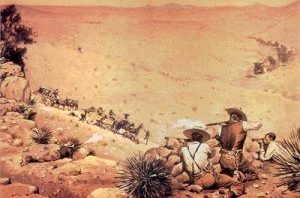
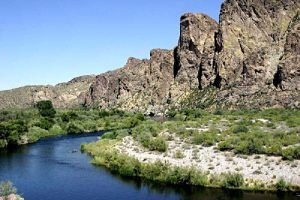 Deputy Marshal Meade, who would bring in the bandits, would say of the soldiers, “I am satisfied a braver or better defense could not have been made under like circumstances.” Throughout the years, the robbery has created a number of various treasure tales, suggesting that some of the coins are still hidden in the area somewhere. However; with all of the suspects set free, this would seem doubtful.
Deputy Marshal Meade, who would bring in the bandits, would say of the soldiers, “I am satisfied a braver or better defense could not have been made under like circumstances.” Throughout the years, the robbery has created a number of various treasure tales, suggesting that some of the coins are still hidden in the area somewhere. However; with all of the suspects set free, this would seem doubtful.
 These days there aren’t many people who haven’t heard of the Santa Ana winds, the California wildfires, or this year, the burning of Australia. We hear all about how global warming is the cause of the tragic fires and loss of both vegetation and life, human and animal. I agree with the analogy that the fires in Australia are horrific, but the cause…well, that has been determined to be, not global warming, draught, or lightning, but rather arson…ARSON!! Disgusting just isn’t a big enough word for what that is.
These days there aren’t many people who haven’t heard of the Santa Ana winds, the California wildfires, or this year, the burning of Australia. We hear all about how global warming is the cause of the tragic fires and loss of both vegetation and life, human and animal. I agree with the analogy that the fires in Australia are horrific, but the cause…well, that has been determined to be, not global warming, draught, or lightning, but rather arson…ARSON!! Disgusting just isn’t a big enough word for what that is.
I can’t imagine why anyone would choose to burn something…anything. You can call it a sickness, and maybe it is, but that cannot be an excuse. If we allow such an excuse, more and more people will use it, take out their frustrations on things around them, and then expect to be excused because they are “sick.” At this point, firefighters are battling wildfires across Australia. Meanwhile, the police in New South Wales have arrested  dozens of people for offenses related to fires, including 24 for deliberately lighting fires and three for looting fire-ravaged communities. There is also a story saying that 183 to 200 people are suspected of “fire-related offenses since November 8th, including for ‘allegedly discarding a lighted cigarette or match on land,’ but no verification as to the exact charges being lodged.
dozens of people for offenses related to fires, including 24 for deliberately lighting fires and three for looting fire-ravaged communities. There is also a story saying that 183 to 200 people are suspected of “fire-related offenses since November 8th, including for ‘allegedly discarding a lighted cigarette or match on land,’ but no verification as to the exact charges being lodged.
It is sad that the most common motive for wildfire arson is crime concealment. Fires are set for the purpose of covering up a murder or burglary or to eliminate evidence left at a crime scene. Fires have also been known to be set to further social, political, or religious causes. The fire set to cover up a crime, while horrific, is at least explainable, but fires set for political, social, or religious reasons is completely disgusting. There is just no excuse for the loss of homes businesses, and lives, human and animal, that could excuse such destruction. One fire, set to cover up a crime is reasonable, though disgusting, but these are all over Australia. And while one  person might be a “sick” arsonist, to find 24 to 200 “sick” arsonists, is not even possible. The other thought that makes me so mad I could scream, is that even if this is socially, politically, or religiously motivated, what is the point? What are they trying to prove? All I can say is, that I hope they find the people who did this and that they give them the maximum sentence possible. I don’t know Australian law, so I don’t know if they have the death penalty or not, but I think these people should get it, if they do. And if not, solitary confinement for the rest of their lives might…just might, be punishment enough, but I really doubt it.
person might be a “sick” arsonist, to find 24 to 200 “sick” arsonists, is not even possible. The other thought that makes me so mad I could scream, is that even if this is socially, politically, or religiously motivated, what is the point? What are they trying to prove? All I can say is, that I hope they find the people who did this and that they give them the maximum sentence possible. I don’t know Australian law, so I don’t know if they have the death penalty or not, but I think these people should get it, if they do. And if not, solitary confinement for the rest of their lives might…just might, be punishment enough, but I really doubt it.
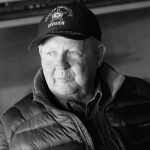 We all know about the Secret Service, but do we really know about them. They are always standing near the President and the other people they are sworn to protect, but most of the time they are virtually invisible. It’s not that we can’t see them, but rather that we don’t notice them, unless something goes haywire. Then their presence is very well known as the whisk the President to safety, while looking for the culprit who has dared to enter that guarded space that surrounds him.
We all know about the Secret Service, but do we really know about them. They are always standing near the President and the other people they are sworn to protect, but most of the time they are virtually invisible. It’s not that we can’t see them, but rather that we don’t notice them, unless something goes haywire. Then their presence is very well known as the whisk the President to safety, while looking for the culprit who has dared to enter that guarded space that surrounds him.
That is information we probably all know, but the Secret Service is much more. Founded in 1865, as an agency to stop counterfeiting, the past 150 years have seen many changes to that institution. Because it is their job to protect those they serve, the Secret Service agents must know a great deal about the people they guard, but they must also know a great deal about the essence of the political process.
Depending on their own interests, the President’s hobbies can be a pain for the Secret Service agents. If the President wants to go jogging, the Secret Service must go along, whether they like to jog or not. Also, the route must be checked, and can be a security nightmare. This applies to any trip the President makes as well.  The hotel, route, and especially the areas where he might be spending time, have to be checked and re-checked. There is no room for error, because if a gunman finds a place to hide, the President’s life could be in grave danger.
The hotel, route, and especially the areas where he might be spending time, have to be checked and re-checked. There is no room for error, because if a gunman finds a place to hide, the President’s life could be in grave danger.
Guarding the President also meant guarding his family, and if the children were young, it was much like being a glorified babysitter. The agent had to go to friends’ houses, ice cream parlors, toy stores, and a number of other places. Not all first children are well behaved, and the Secret Service witnessed it share of tantrums. If the kids didn’t like how things were going, they simply called their parents, who often told the agents to “take the child wherever he/she wanted to go.” This usually served to make the kids more bold and belligerent. Of course, not all of the children were unruly, but I would imagine that more were, than weren’t.
The Secret Service had to remain bi-partisan, because no matter what their political views were, their job was to protect the President, regardless of his political affiliation. The Secret Service agents also had to deal with the reckless behavior of the Presidents they served. Some Presidents were promiscuous, and expected their agents to warn them if their wife was coming in. Others were reckless with their own safety, as was the case when John F Kennedy, who insisted on riding through Dallas in a convertible on that fateful November day in 1963.
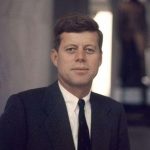 While guarding the President of the United States can be stressful and worrisome, it can also be very rewarding. Of course, the Secret Service agents travel the world with the President, and they have front row seats to some of the greatest events in history. Still, some Secret Service agents actually bond with the President. Such was the case with President Ronald Reagan and Agent John Barletta. Agent Barletta says of President Reagan, “We worked so well together. The whole relationship was a projection of him, how he was… He was a great guy to be around. I wouldn’t trade those years for anything.” For most of the Secret Service agents, it is an honor and a privilege to protect the President. It doesn’t matter if the work id time consuming, complicated, and stressful. These men and women feel born to protect the President.
While guarding the President of the United States can be stressful and worrisome, it can also be very rewarding. Of course, the Secret Service agents travel the world with the President, and they have front row seats to some of the greatest events in history. Still, some Secret Service agents actually bond with the President. Such was the case with President Ronald Reagan and Agent John Barletta. Agent Barletta says of President Reagan, “We worked so well together. The whole relationship was a projection of him, how he was… He was a great guy to be around. I wouldn’t trade those years for anything.” For most of the Secret Service agents, it is an honor and a privilege to protect the President. It doesn’t matter if the work id time consuming, complicated, and stressful. These men and women feel born to protect the President.
 In a time of national turmoil, it has become trendy to disrespect the flag of the United States. It is all done supposedly to protest things like racism or police brutality, but in reality, the flag, and our allegiance to it and our nation have nothing to do with those causes. I agree with the rights of citizens to carry on a peaceful protest, but I don’t agree with this way of doing it…or burning our flag. Some people will not like this view of things, but I wonder why the flag is chosen as the avenue for these protests. These protesters don’t want to leave this nation. They know it would be crazy to do so, because they would never have the same kinds of freedoms they have here, especially the right to protest. That is fine, but they use flag is a means to grab attention, and that is where I disagree. A protest can be held, while still remaining in solidarity as a nation. People will listen when the nation is not disrespected.
In a time of national turmoil, it has become trendy to disrespect the flag of the United States. It is all done supposedly to protest things like racism or police brutality, but in reality, the flag, and our allegiance to it and our nation have nothing to do with those causes. I agree with the rights of citizens to carry on a peaceful protest, but I don’t agree with this way of doing it…or burning our flag. Some people will not like this view of things, but I wonder why the flag is chosen as the avenue for these protests. These protesters don’t want to leave this nation. They know it would be crazy to do so, because they would never have the same kinds of freedoms they have here, especially the right to protest. That is fine, but they use flag is a means to grab attention, and that is where I disagree. A protest can be held, while still remaining in solidarity as a nation. People will listen when the nation is not disrespected.
On December 28, 1945, the US Congress officially recognized the Pledge of Allegiance to the Flag. At that time they also gave instructions as to how the pledge should be performed. They stated that The Pledge of Allegiance to the Flag should be rendered by standing at attention facing the flag with the right hand over the  heart. The statement of the pledge was specific, “I pledge allegiance to the Flag of the United States of America, and to the Republic for which it stands, one Nation under God, indivisible, with liberty and justice for all.” The pledge is a statement of a people who are proud to be Americans. I know that these days, there are those who are not “proud to be Americans,” and to that I say, “Then leave!!” Our citizens are not prisoners here. They are free to travel…free to leave, so if you don’t love this nation, then go.
heart. The statement of the pledge was specific, “I pledge allegiance to the Flag of the United States of America, and to the Republic for which it stands, one Nation under God, indivisible, with liberty and justice for all.” The pledge is a statement of a people who are proud to be Americans. I know that these days, there are those who are not “proud to be Americans,” and to that I say, “Then leave!!” Our citizens are not prisoners here. They are free to travel…free to leave, so if you don’t love this nation, then go.
I realize that while the people using our flag and our pledge don’t want to leave, they just want to disrespect it. Oddly, many of them would disagree with that statement, but to use the flag and the pledge as part of a protest is, in my opinion, disrespectful to our nation. There are many other ways to protest, and if these people want the support of the nation for their protest, they need to understand that disrespecting the nation that the people love, will not get the backing of the masses. The people are so angry about the disrespecting of the flag, pledge, and nation, that they don’t even listen to the “meat” of the protest. The avenue they have chosen  completely defeats the purpose of the protest.
completely defeats the purpose of the protest.
We, the people of the Unites States of America must turn back to allegiance to this nation that was created “under God” and find another avenue in which to protest the things about it, of which we disapprove. Change can happen, but we must put the masses on our side to affect change, not turn them against us and the things we protest. On this day, the 74th anniversary of the day when we first recognized our Pledge of Allegiance, I ask those who would protest, to turn from using the flag and pledge as an avenue to a protest, and use methods of honor and not dishonor.
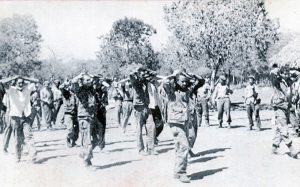 We have all heard the song “Home for Christmas.” It’s about a young woman falls in love and develops a long-distance relationship with a soldier on active duty, The soldier sings the song, knowing he probably won’t be home for Christmas that year. It was a bittersweet, sentimental story, that hopefully ended well for the couple.
We have all heard the song “Home for Christmas.” It’s about a young woman falls in love and develops a long-distance relationship with a soldier on active duty, The soldier sings the song, knowing he probably won’t be home for Christmas that year. It was a bittersweet, sentimental story, that hopefully ended well for the couple.
In 1962, however, the song could have taken a totally different meaning. The Bay of Pigs Invasion…failed attempt by US-sponsored Cuban exiles to reverse Fidel Castro’s Cuban Revolution, beginning with a military invasion of northern Cuba. The operation lasted just three days, from April 17 to April 20, 1961. About 1,202 members of the invading Brigade 2506 were captured, of whom nine died from asphyxiation during transfer to Havana in a closed truck. For the families of these men, as for any family of a POW, it was devastating. To make matters worse, the Cuban government wanted $53 million in food and medical supplies, to be donated by companies all over the United States, as a condition for their release. The US government agreed to the terms, in the hope of getting the men released by Christmas.
The deal made, with only one glitch, when Castro changed the deal…demanding an additional $2.9 million in cash, just as the prisoners were preparing to leave on December 23rd. The money was raised in a frantic day of fundraising on 24 December by the president’s brother, Attorney General Robert F. Kennedy, and General Lucius D Clay, an advisor to the Cuban Families Committee of prisoners’ relatives. The largest donation was $1m, given by a donor who wished to remain anonymous but was not, the government said, part of the Kennedy family. Finally on December 24th, The airlift of the prisoners began, when the first 107 men boarded a DC6 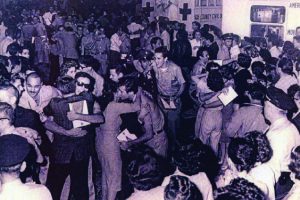 airliner supplied by Pan American World Airways at a military airbase near Havana. After just four flights, however, the operation was suspended for the night, to the consternation of the thousands of anxious relatives of the prisoners, keeping vigil in Florida for their return. Flights resumed early this morning, and by the end of the day most of the 1,113 prisoners had been safely returned. Cuban exiles in the United States arranged the return of 60 wounded prisoners soon afterwards for $2.5 million. The remainder were held in captivity until October 1986, when they were released. Ramon Conte Hernandez was the last one released, and the ordeal was finally over. As the song goes, they would finally be “Home For Christmas.”
airliner supplied by Pan American World Airways at a military airbase near Havana. After just four flights, however, the operation was suspended for the night, to the consternation of the thousands of anxious relatives of the prisoners, keeping vigil in Florida for their return. Flights resumed early this morning, and by the end of the day most of the 1,113 prisoners had been safely returned. Cuban exiles in the United States arranged the return of 60 wounded prisoners soon afterwards for $2.5 million. The remainder were held in captivity until October 1986, when they were released. Ramon Conte Hernandez was the last one released, and the ordeal was finally over. As the song goes, they would finally be “Home For Christmas.”

